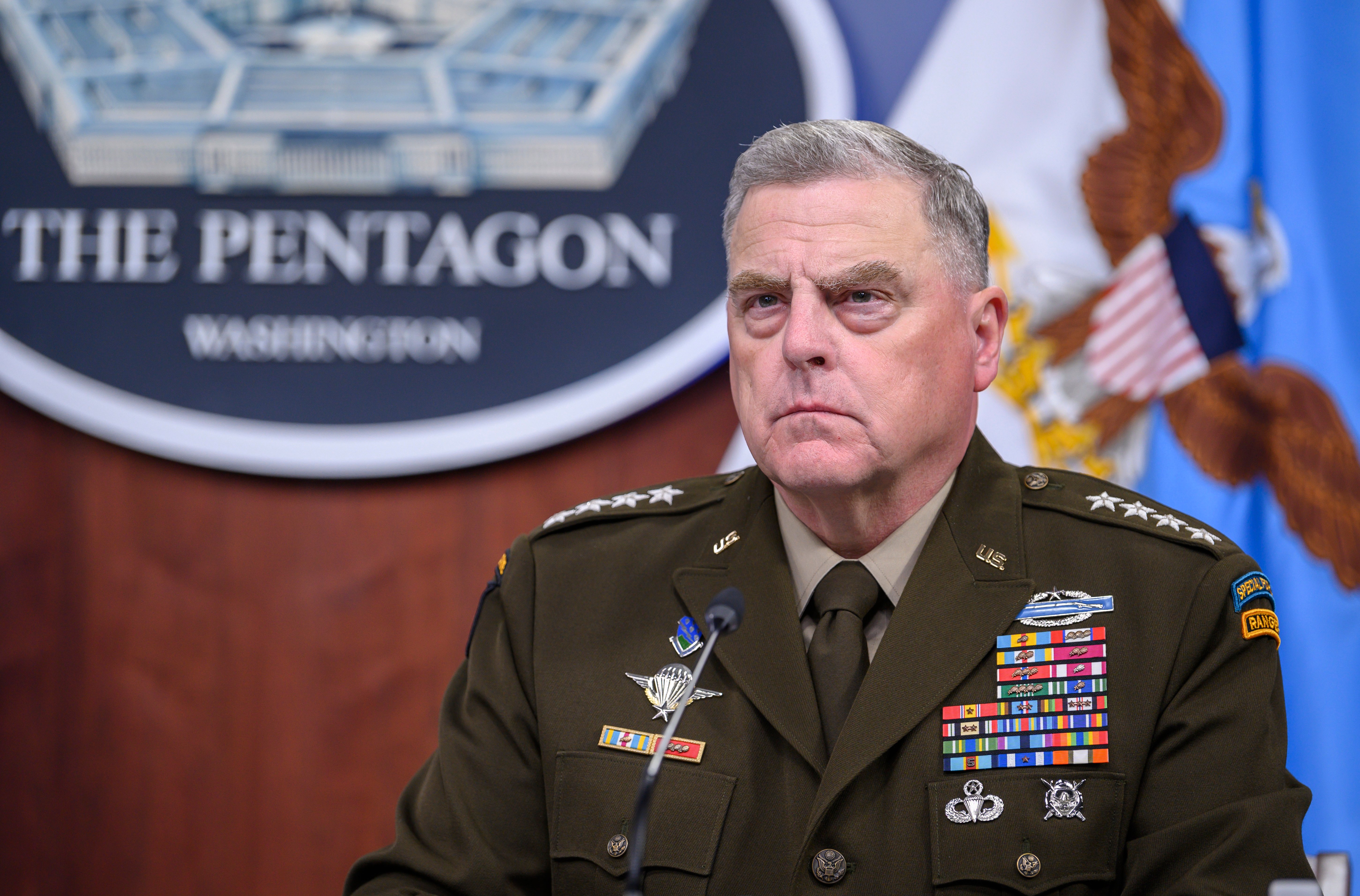
NATIONAL HARBOR, Md. – The chairman of the Joint Chiefs of Staff said “China is coming at us rapidly” – economically, diplomatically and militarily, and that challenge is putting existing international behavior “under tremendous stress.”
“Every single cent spent in the U.S. military is spent to preserve peace,” Army Gen. Mark Milley said Monday at the Navy League’s 2021 Sea-Air-Space meeting. He added that the more than $700 billion budget request for Fiscal Year 2022 means having a military ready now and modernized for the future.
The Senate Armed Services Committee added more than $25 billion to the original request. Differences with the House version of the authorization bill will have to be worked in conference committee later this summer.
Milley added what was happening now reflected a new age of threat brought on by the convergence of a range of technologies. He cited artificial intelligence, autonomous systems, 3-D printing, biotechnology and long-range fires available to every nation over the next decade as examples of the new technologies that can have either an immediate impact or in the future.
He used the lessons of the interwar years of the 1920s and 1930s as an example of where there is a comparable change in the character of war brought about by technologies like tanks, aircraft and radio, which were available globally but only the Germans integrated their power.
“All of these combined changed the fundamental character of war,” Milley said. The result was Germany “overran Western Europe in 18 months.”
Milley said another lesson to be drawn from the 20th century is how unprepared the United States was when it entered the two world wars and the cost in American lives were high.
“In neither war was America prepared,” he said.
Milley said the need now is not numbers but “a different set of capabilities” and “we must shift [spending priorities] now” from legacy systems. This has been a tough sell on Capitol Hill. The Navy has received criticism from lawmakers over its plans to retire Ticonderoga-class Aegis cruisers to apply more money to future systems.
In embracing new technologies, he called the Navy an “agent of change” in this era as it looks at a future fleet that is one-third unmanned and having more than 40 percent of its aviation assets be unmanned.
“These technologies are available to the country now,” Milley said.
Citing his parents’ service in the Navy during World War II – his father a corpsman with the 4th Marine Division and his mother a WAVE assigned to a Seattle hospital – Milley said, “the United States is indeed a maritime nation” exercising sea control and power projection, and will continue to be.
If “we fail to adjust, we will condemn a future generation” that will suffer high casualties in fighting another war.





